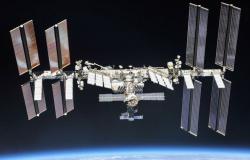Updated: 06/28/2024 00:11
Friday, June 28, 2024 • 00:09
In order to avoid an escalation of inflation, the Minister of Economy, Luis Caputo, decided to once again postpone the entry into force of most of the increase in fuel taxes planned as of July 1. Despite the measure, gasoline and diesel will increase up to 7% starting next Monday.
According to Energy Report, the national government has authorized a minimal increase in taxes that will have an impact of only 1% at the pumps. However, to this 1% must be added an additional 2% for the monthly devaluation (crawling peg) and another 2% for the increase in the prices of biofuels for blending. Thus, gasoline and diesel will increase between 5% and 7% starting next Monday.
The 7% limit was set by oil companies -according to sources in the sector who revealed to this newspaper- in view of the abrupt fall in sales at service stations, mainly due to the collapse of the Premium version of gasoline, which fell 21% last May throughout the country.
There were even oil companies that offered XL discounts of up to 20% with a limit of $10,000 last weekend to encourage sales of Premium gasoline. With this promotion, the strange situation arose for motorists that the highest quality version was cheaper than the super version.
The decision to postpone the full application of the Tax on Liquid Fuels (ICL) and Carbon Dioxide will be reflected in the next few hours through a decree, as happened last June with Decree 466/2024. As part of the strategy to stop inflation, earlier Minister Caputo also announced that there will be no increases in electricity and gas rates.
They ruled out versions of increases of up to 18% in fuel prices
This Thursday, before the confirmation of the postponement of the entry into force of most of the tax, a report from the Argentine Institute of Fiscal Analysis (IARAF) circulated on the updates corresponding to inflation in the fourth quarter of 2023 and the first quarter of 2024, which should be carried out starting on July 1.
The document warned that if the Government does not take action to postpone or modify the planned method of updating the Tax on Liquid Fuels, as of July 1, these would have to be updated by 115%, which would cause an impact at the pump of up to 18% in the City of Buenos Aires.
However, when asked by this media, the Energy Secretariat ruled out an 18% increase at the pumps as was expected according to these private estimates, and confirmed that the tax will only increase by 1%. It will only be $11 per liter, clarified the sources consulted by Energyr Report. In fact, before this decision was announced, fuel prices in Neuquén, for example, had already increased by 3.7% since last Monday.
Fuels: How much will gasoline and diesel cost starting Monday?
Currently, YPF super gasoline in the city of Buenos Aires costs $905, while grade 2 diesel costs $941. If an average increase of around 6% is applied, these two fuel variants will cost $960 and almost $1,000, respectively.
Meanwhile, YPF Premium gasoline, which currently costs $1,117 per liter, will cost around $1,300, and grade 3 diesel will rise from $1,196 to approximately $1,270.
If an average increase of 6% is confirmed next Monday, fuel prices will have increased by an average of 37.4% for super and up to 50% for premium since last January, when Javier Milei adopted the liberalization of prices for the sector. In that same period, the official inflation rate according to INDEC was 71.9%.
The Government postponed the increases in electricity and gas
On the other hand, official sources confirmed to Ámbito that the Government also decided not to increase electricity and gas rates in July, as had been anticipated.
In principle, this measure will only affect July rates, with the aim of promoting the recovery of purchasing power.
“If a consumer spent exactly the same amount in June as in July, his bill will have the same amount to pay,” explained sources from the Energy Secretariat. And, from now on, he will pay less if consumption decreases.
Meanwhile, it is worth remembering that the June bill includes the increase announced at the time.
At the beginning of this month, the national government modified the maximum subsidized consumption limits and bonuses on wholesale prices of electricity and natural gas for N2 (low income) and N3 (medium income) users in accordance with the established Transition Period. by Decree No. 465/24.






